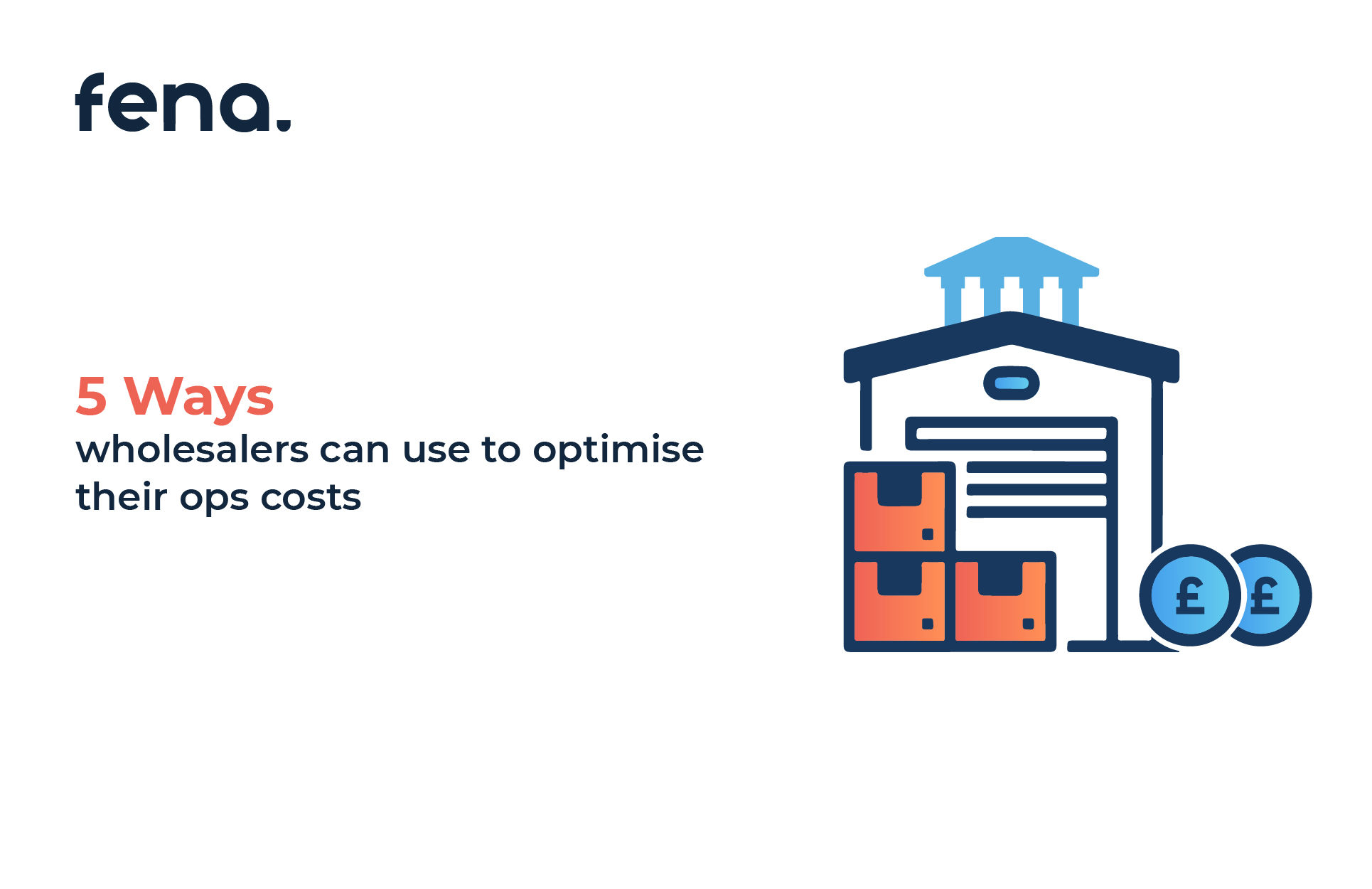5 ways wholesalers can use to optimise their ops costs
by Gosia Furmanik on January 12, 2023

With the persistent inflation and rising costs of running a business, more and more wholesalers are looking to optimise their operational costs. These ideas are centred around recruitment and staffing, automation, payments, cash flow management, and supply chain optimisation. By streamlining recruitment and staffing processes, investing in automation, optimising payments, improving cash flow management, and implementing supply chain optimisation, wholesalers can reduce costs, improve efficiency, and increase profitability. These strategies can help wholesalers optimise their operational costs, reduce waste, and achieve long-term success.
Sure, here are five ideas for optimising operational costs for a wholesaler:
Streamline Recruitment and Staffing Processes: A major part of operational costs for wholesalers is salaries and wages. By optimising recruitment and staffing processes, wholesalers can reduce labour costs. Some strategies to achieve this include automating the recruitment process, outsourcing some non-core functions, and investing in training programs to retain existing employees.
Invest in Automation: Automation can help wholesalers reduce operational costs by streamlining processes, improving efficiency, and reducing the need for manual labour. For instance, automating inventory management, order processing, and invoicing can reduce errors and save time, while also cutting labour costs. Additionally, investing in robotics and AI technology can help automate repetitive tasks, freeing up employees to focus on higher-value tasks.
Optimise Payments: Payment processing can be a significant cost for wholesalers, especially if they are using outdated systems. To optimise payments, wholesalers can consider adopting newer technologies, such as Open Banking payments. These can help decrease transaction fees, increase efficiency, and reduce the risk of fraud. Open Banking payments offered by fena save our clients up to 85% on their payment processing fees.
Improve Cash Flow Management: Cash flow is critical to the success of any business, and wholesalers are no exception. By improving cash flow management, wholesalers can reduce operational costs by avoiding unnecessary fees, late payments, and interest charges. Strategies to achieve this include adopting faster payment methods, negotiating favourable payment terms with suppliers and customers, and improving cash forecasting and planning.
Implement Supply Chain Optimisation: Supply chain optimisation can help wholesalers improve efficiency, reduce costs, and increase profitability. This can be achieved by collaborating more closely with suppliers, optimising inventory levels, and reducing lead times. Additionally, wholesalers can consider adopting technologies such as RFID tracking or blockchain to improve visibility and transparency across the supply chain.
By adopting these strategies, wholesalers can optimise their operational costs, reduce waste, and increase profitability.
In conclusion, optimising operational costs is crucial for wholesalers to maintain a competitive advantage and achieve long-term success. By implementing the five strategies discussed above - streamlining recruitment and staffing processes, investing in automation, optimising payments, improving cash flow management, and implementing supply chain optimisation - wholesalers can reduce costs, improve efficiency, and increase profitability. It's important to note that these strategies are not exhaustive, and wholesalers should continue to explore new and innovative ways to optimise their operations. Overall, with a focus on continuous improvement, wholesalers can achieve their operational cost optimization goals and position themselves for sustained success in an increasingly competitive marketplace.